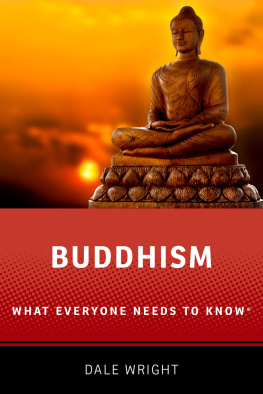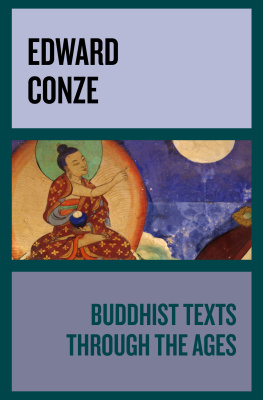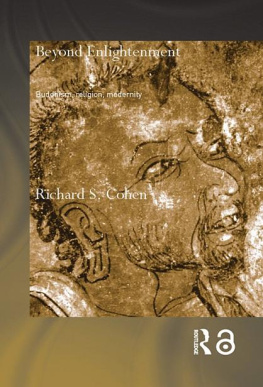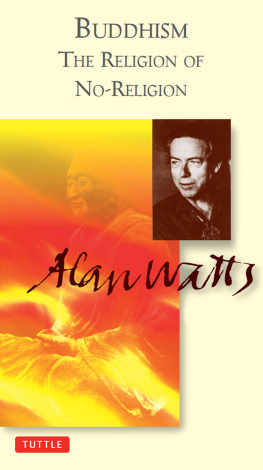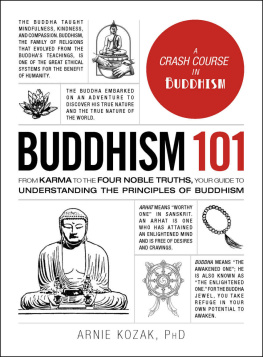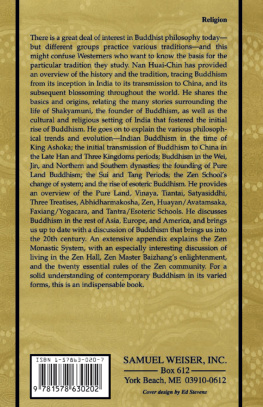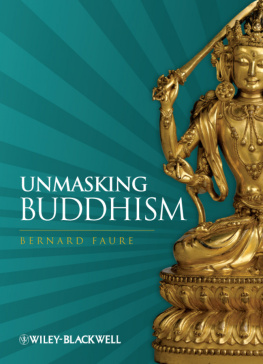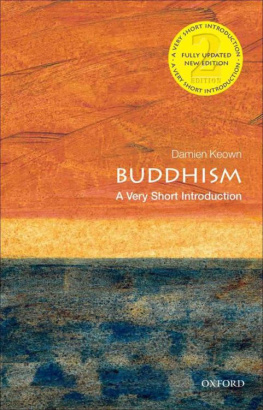BUDDHISM
WHAT EVERYONE NEEDS TO KNOW

Oxford University Press is a department of the University of Oxford. It furthers the Universitys objective of excellence in research, scholarship, and education by publishing worldwide. Oxford is a registered trade mark of Oxford University Press in the UK and certain other countries.
What Everyone Needs to Know is a registered trademark of Oxford University Press
Published in the United States of America by Oxford University Press
198 Madison Avenue, New York, NY 10016, United States of America.
Oxford University Press 2020
All rights reserved. No part of this publication may be reproduced, stored in a retrieval system, or transmitted, in any form or by any means, without the prior permission in writing of Oxford University Press, or as expressly permitted by law, by license, or under terms agreed with the appropriate reproduction rights organization. Inquiries concerning reproduction outside the scope of the above should be sent to the Rights Department, Oxford University Press, at the address above.
You must not circulate this work in any other form and you must impose this same condition on any acquirer.
Library of Congress Cataloging-in-Publication Data
Names: Wright, Dale S, author.
Title: Buddhism : what everyone needs to know / Dale S. Wright.
Description: New York, NY : Oxford University Press, [2020] |
Includes bibliographical references and index.
Identifiers: LCCN 2019021020 | ISBN 9780190843670 (hardback) |
ISBN 9780190843663 (paperback) | ISBN 9780190843687 (updf) |
ISBN 9780190843694 (epub)
Subjects: LCSH: Buddhism.
Classification: LCC BQ4022 .W75 2020 | DDC 294.3dc23
LC record available at https://lccn.loc.gov/2019021020
Contents
Why would everyone need to know anything about Buddhism? One important reason is that no matter who you are or where you live, Buddhism is part of your cultural environment. Whether we know it or not, most of us have Buddhist neighbors or communities of Buddhists living not far away. Now more than ever mutual understanding between people from different cultural backgrounds is crucial. We live and work together. We share the same trains, schools, shopping centers, theaters, and everything else, and mutual understanding is the key to productive, peaceful coexistence.
But getting along with others isnt the only reason to introduce yourself to Buddhism, nor even the best one. There is much that all of us can learn from each other, knowledge that may in fact prove to be quite useful in shaping our own ways of living. Many of us have been doing that for decadestaking an interest in cultural, religious, and philosophical traditions different from our own as a way to stretch our minds, to broaden our understanding not just of other people but of the many admirable ways to think about the world and the many ways to live creatively and responsibly within it.
In this respect many people who were not raised Buddhists have discovered that Buddhism has a lot to offer. Among the worlds religions it is certainly unique. Indeed, even though Westerners have been interested in Buddhism for almost two centuries, debate still continues over what Buddhism is. Is it a religion? A philosophy? A way of life? A set of techniques for mental and psychological enhancement? It appears to function in all of these ways and continues to impress observers with the range of values it offers.
One way that Buddhism is currently influencing contemporary global culture is through the practice of mindfulness. Mindfulness trainingcultivated as an offshoot of centuries of sophisticated Buddhist meditation practicesis to be found virtually everywhere around us. It is being taught in schools as an effective means of building the capacity for concentration, learning, and creativity. Hospitals are teaching mindfulness exercises as proven methods of stress reduction, as techniques for radical pain relief, and much more. Mindfulness is being taught in police departments, in the advanced technology labs of Silicon Valley, in churches, movie studios, research institutions, and the military. Instruction in mindfulness is now provided to professional athletes, surgeons, senior citizens, and in almost any setting we can imagine. Although we dont necessarily need to understand the Buddhist origins of mindfulness to benefit from it, having that knowledge certainly does put us in a position to appropriate it in more thoughtful and innovative ways.
But mindfulness is just one aspect of Buddhism. For a functional and well-rounded understanding of Buddhism much more is required. Knowing about the Buddha himself and about the origins of Buddhism is a good place to start. It is also important to understand how Buddhism spread throughout Asia, how it diversified into a number of different sects and styles, and how these have evolved over the many centuries of Buddhist history. You would certainly want to know the basic teachings of Buddhism and the various practices in which Buddhists engage, with perhaps special attention to Buddhist meditation since that has become so widely practiced all over the world. Well-informed readers might also want to ask questions about contemporary global Buddhism, such as the position of Buddhism in the world today.
This book is my best effort to provide that background, to offer a well-rounded account of Buddhism for intelligent readers from many different backgrounds. Although I certainly cant claim to know everything about Buddhism, I have been fascinated by it for much of my life, studying as many dimensions of this tradition as possible while writing books and essays about particular aspects of it. Ive been teaching college students the basics of Buddhism for almost four decades, mostly at Occidental College in Los Angeles, where I have spent much of my career, but occasionally by invitation from Asian and other Western universities. In other words, there is a sense in which Ive been writing this book for most of my life without ever knowing it. So when Oxford University Press invited me to author a book in this series, I knew the time had come to accept the challenge to compose a cogent, user-friendly introduction to Buddhism.
Before beginning, you may want to ask whether I am a Buddhist. The honest answer is Im not sure. But this much is clear: If you study something that interests you with an open mind for a very long time it will surely seep into you. You will be affected by it. It will change who you are at least to some degree. In fact, from the very outset that was my hope, even a commitment that I made to myself. I would seek to learn both about Buddhism and from it. While learning everything I could about what Buddhism was and is, I would allow it to influence my own way of life whenever that seemed desirable or wise. Thats the point of the great wisdom traditions of the world. There is much to learn from them to the benefit of us all.
Given this commitment, when I study Buddhism I ask myself what of value I can learn from it. And when Buddhists explained that their way of thinking on these important human matters can be fully understood only in tandem with the practice of meditation, I took their word for it and engaged in this practice. I visit Buddhist people and Buddhist temples all over the world whenever I can and ask myself what can be learned from them. I suspect that sounds very Buddhist. But Ive never been initiated or officially accepted as a Buddhist. No individual serves as my guru or teacher, and no particular sect of Buddhism recognizes me as one of their own. Im not a monk nor a temple member, nor have I taken vows or anything of an official Buddhist nature. So, am I a Buddhist? I still dont know. But for the purposes of this book Im perfectly willing to let you decide.

